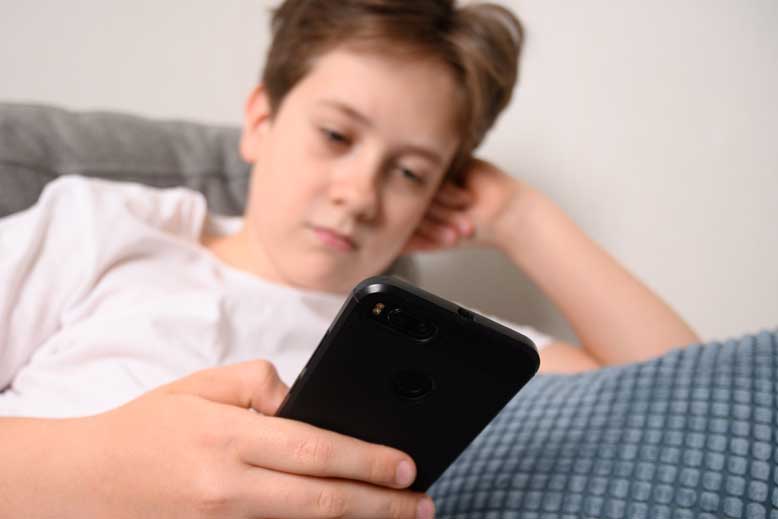written by Bob Kellogg
LOS ANGELES – When you see a tween or teen on the street, in a store, outside a school building, sitting in a car, eating at a fast food restaurant…virtually anywhere…what are they likely to be doing? If your answer is staring at their Smartphone, you’d probably be right. And a new study done by the University of California Los Angeles says that can be a roadblock in a child’s ability to read emotions.

In an article published in Malay Mail Online, Patricia Greenfield, senior author of the study, complained, “Many people are looking at the benefits of digital media in education, and not many are looking at the costs. Decreased sensitivity to emotional cues—losing the ability to understand the emotions of other people—is one of the costs.”
The American Academy of Pediatrics (AAP) reports that as of 2009 22 percent of teens log on to their favorite social media sites more than 10 times a day, half log on more than once a day. Seventy-five percent own cell phones. Twenty-five percent use them for social media, 54 percent for texting and 24 percent for instant messaging. No doubt those numbers have increased since that poll was published.
Researchers worked with a total of 105 sixth graders from a Southern California public school, a small but significant study. Half of those students spent five days at a nature and science camp where digital technology was strictly taboo. It seems participants were forced to interact with each other face-to-face instead of screen-to-screen.
All were tested before and after the five days.
All were shown photographs of people and asked to state whether the emotions expressed in the photos were happy, sad, angry or frightened. They were also shown videos and asked to describe what was happening in the simple scenarios.
The test group of campers did much better, paring their average down to 9.41 errors, a significant improvement over their pre-camp average of 14.02. Both the boys and girls who did not attend the nature camp showed little progress.
“You can’t learn nonverbal emotional cues from a screen in the way you can learn it from face-to-face communication,” stated lead author Yalda Uhls. “If you’re not practicing face-to-face communication, you could be losing important social skills.”
Lighthouse Network, tells EAGNews, “Being able to read a person’s facial expressions and body language, hear their tone of voice and look them in the eye allows us to gain so much more from the interaction than even talking to them on the phone. The connection the face-to-face contact brings powerfully deepens the relationship as well, which allows further opportunities to practice and hone more complex aspects of relationship skills.”
Besides presenting a roadblock to developing social skills, social media presents other problems. Lighthouse Network lists a few:
– Impatience in relationships because of the instantaneousness of social media.
– Interference with relationship skill acquisition and implementation.
– Having so many casual acquaintances as able to reach out to many people, but then no time to really have deeper relationships.
– Mistaking social media relationships for real ones.
– Using social media to engage in more in depth and complicated relationship activities, like dating, breaking up, managing conflict, apologizing, forgiving, offering a job, explain a misunderstanding, taking ownership of a problem, accountability and disciplining activities to name a few.
– Inability to articulate or explain anything with depth of thought and feeling and requires back and forth connection.
Predictably, the key to ensuring children develop healthy social skills in an uncertain environment of social media are parents. The AAP advises parents to talk to their children about their online use and discuss the issues of cyberbullying, sexting and the difficulty of effectively managing time because of spending too much time on social media.
The organization says parents also need to become better educated about the technologies their children are using. And they need to supervise their children’s online activities with active participation and communication rather than just depending on monitoring software.
There’s a report parents can refer to: ‘The Impact of Social Media Use on Children, Adolescents and Families’ for advice.
